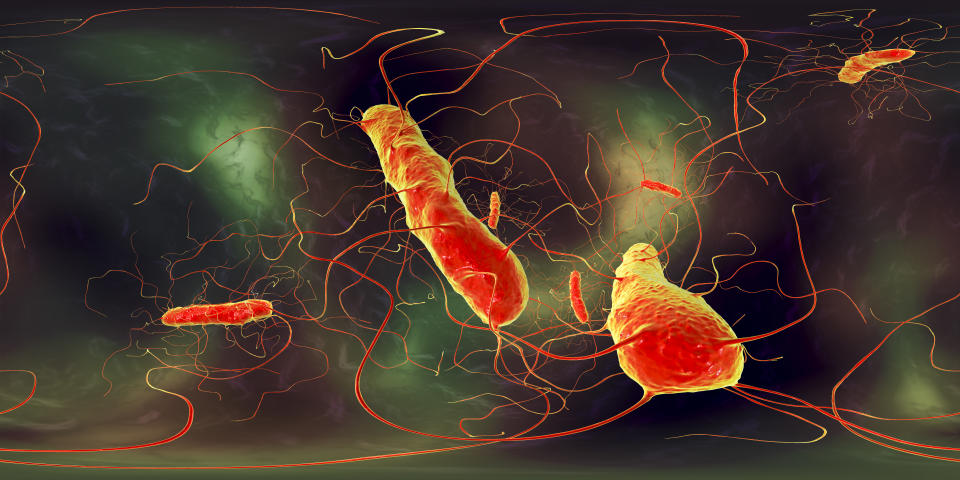Faecal transplant could reverse age-related memory loss, scientists suggest

Faecal transplants may one day help reverse a loss of cognitive function, research suggests.
Scientists from the University of East Anglia transferred faecal matter from old mice to younger rodents, before measuring how it affected the animals’ memory and learning skills.
Results revealed the nauseating-sounding procedure significantly altered the bacterial make-up of the young mice’s guts.
They then performed worse in a maze test designed to assess their memory and spatial learning.
Read more: Faecal transplant in C-section babies could ward off asthma
The scientists noted the young rodents “began to behave like older mice, in terms of their cognitive function”.
While a long way off, the team wondered whether a faecal transplant from a young person to an elderly individual could reverse the cognitive decline that naturally occurs with age.

“Ageing is an inevitable process that starts immediately after birth and ultimately leads to physical health problems as well as a decline in psychological wellbeing and cognitive function,” said study author Dr David Vauzour.
“Research has shown the ageing process may be linked with age-related changes in our gut microbiota.
Read more: Crohn’s could be treated via freeze-dried faeces capsules
“Recently, the existence of two-way communication between the gut and the brain – known as the gut-brain axis – has emerged as an important player in shaping aspects of behaviour and cognitive function.
“We wanted to see whether transferring gut microbes from older to younger mice could affect parts of the central nervous system associated with ageing.”
Watch: What is a faecal transplant?
Shifts to our gut bacterial make-up are known to “affect a variety of systems”, but evidence on how it impacts cognitive function directly was “lacking”, the scientists wrote in the journal Microbiome.
To learn more, the team transferred gut bacteria from young adult mice to rodents who were either the same age as the donors or older, via a faecal microbial transplant (FMT).
Results revealed the younger mice who received the transplant went on to have “impaired spatial learning and memory”.
This occurred alongside a change to the expression of proteins involved in nerve cell signalling and “synaptic plasticity” – a term that describes the malleability of the structures that pass signals between nerve cells.
Read more: Dementia onset linked to personality, study suggests
The scientists also noted a “strong reduction” in certain gut bacteria.
“Our research shows a faecal transplantation from an old donor to a young recipient causes an age-associated shift in the composition of gut microbiota,” said Dr Vauzour.
“The procedure had an impact on the expression of proteins involved in key functions of the hippocampus – an important part of the brain that has a vital role in a variety of functions including memory, learning but also in spatial navigation, emotional behaviour and mood.
“In short, the young mice began to behave like older mice, in terms of their cognitive function.”
No change was observed to the younger rodents’ anxiety levels, “explorative behaviour” or “locomotor activity”.
The scientists concluded: “These results highlight the paramount importance of the gut-brain axis in ageing and provide a strong rationale to devise therapies aiming to restore a young-like microbiota to improve cognitive functions and the declining quality of life in the elderly.”
They believe their results “provide a strong rationale to devise therapies aiming to restore a young-like microbiota to improve cognitive functions and quality of life in the elderly”.
“While it remains to be seen whether transplantation from very young donors can restore cognitive function in aged recipients, the findings demonstrate that age-related shifts in the gut microbiome can alter components of the central nervous system,” said co-author Professor Claudio Nicoletti, from the University of Florence.
Co-author Professor Arjan Narbad from the University of East Anglia added: “Manipulating the microbiome is increasingly being seen as a way of improving or maintaining human health and these results are an exciting indication of its potential for helping us age healthily.
“We have established an FMT service on the Norwich Research Park to treat serious gut infections and now want to explore in humans its effectiveness in combating a number of age-related conditions, including cognitive decline.”
What is faecal microbial transplantation?
FMT is only approved in the UK when other treatments have failed to stop diarrhoea caused by the bacteria Clostridium difficile.
It involves faeces being taken from a healthy donor and processed.
A liquid mixture is then transplanted into a patient’s intestine via an endoscope. The aim is to restore the balance of gut bacteria so the patient can fight the infection.
Donors are first tested for an array of infections. They must be free of medical problems and lead a healthy lifestyle.
C. difficile can be tricky to treat, with up to a one in four chance of the infection returning after initially seeming to be cured.
The bacteria can become less responsive to antibiotics over time, prompting doctors to recommend FMT.
There have been no reported cases of infections as a result of a patient receiving the transplant.
Watch: Study sought super donors for faecal transplants


